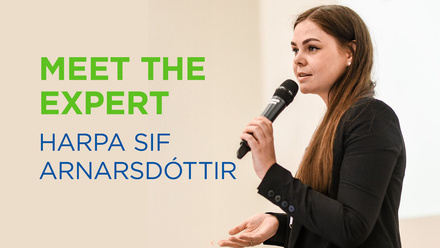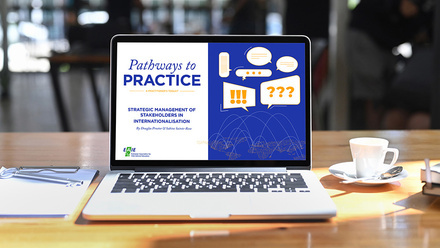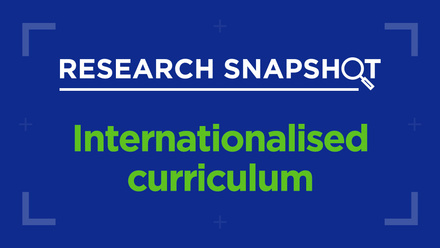Your crucial allies in Erasmus+ digitalisation

International officers, and specifically mobility advisers such as the Erasmus+ coordinators of our institutions, are facing a challenging year. The new Erasmus call expects all institutions to be connected to the ‘EWP-network’, which means they must sign digital Inter-institutional Agreements (IIAs) and Learning Agreements (LAs) before the start of mobility activities in September 2022. In this article, we suggest three crucial partners within your institution that you can start connecting with right away.
With the academic year 2021–22 designated a ‘transitional year’, the actual deadline for implementing these new changes is really much sooner – a spring 2022 deadline at the latest. In a4 steps to prepare for the European Student Card rollout, we described the four steps you could’ve taken while ‘actively’ waiting for news about these latest developments. This tight timeline leaves institutions a window of just a few short months to prepare, while many still feel like they are grasping at (paper) straws. For the European Student Card initiative (ESCi) to be successful, both you and your partner institutions must be connected to the Erasmus Without Paper (EWP)-network, and for this to be successful you need to find the right people within your organisation and beyond.
Find the right experts in your institution
The promise and vision of the ESCi are clear. The execution, however, requires more expertise than one international officer can offer. As a primary point of contact for the National Agencies, the Digital Officers and Erasmus coordinators at our institutions suddenly have to speak IT fluently - and as we all know, learning a language takes time and inevitably means we’ll make mistakes. Luckily, there is no need to struggle alone; we can tackle these problems together with the help of colleagues.
Luckily, there is no need to struggle alone; we can tackle these problems together with the help of colleagues.
Bringing together individuals with different expertise will be essential when implementing the ESCi. The following three stakeholders will be your crucial allies in the process.
Your IT department or Information Technology Organisation. These actors will help you set up much of the required technology and ensure that you follow the correct standards. They are in charge of establishing, monitoring and maintaining information technology systems and services and therefore have the knowledge to help you set up the new systems. This is especially important as ESCi requires us to exchange sensitive data between a lot of different actors. They are also key in helping you master the new language that is being used in this area, including terminology like APIs (ie application programming interfaces), identity management (for your eduGAIN connection), mapping, integration, gateway, XML and Change Notification Receiver.
The EWP Project leader. A challenge when working with the IT department can be that they rarely specialise in international mobility, and the different processes and terminology they use can confuse those of us who are mobility specialists. To overcome this difficulty, it is vital to identify someone who can offer a viable link between the necessary IT knowledge and the International Office’s (IO) extensive expertise on mobility issues so that these two groups can talk with each other. Enter the EWP Project leader.
The person who occupies this role may have one of a number of different titles or designations, including functional application manager, information manager, information architect, process analyst or main user. Whatever their title, the individual in this role is crucial for getting everything to work and may play the most untraditional role within the IO today. With the rise of digitalisation, people may find themselves in this central role either by chance or due to a strategic decision. They may either work at the IO or in the IT department, depending on how your institution is organised. However, the crucial consideration is that this person understands the processes and requirements embedded within international mobility, especially as relate to the ESCi, and can explain and plan the implementation with your institution’s more tech-savvy departments.
Not every institution has people available to fulfil (one of) these roles. Clear definitions for these assignments may be lacking, and especially in smaller institutions this kind of multi-faceted role might be the responsibility of just one person. Also, as this can be a new role at the institution, there may not always be people with both the right IT skills and mobility knowledge. Gaining the right competencies in both areas requires time and training. Institutions will need to invest in helping individuals develop the right skills and occupy the right position(s) to make mobility happen. Finding someone who can bridge the gap between IT and the user experience is essential. Importantly, they can help train the third group of key allies we have identified and discuss next – ie Erasmus/IO coordinators - with the skills they need to face the new world of mobility.
Institutions will need to invest in helping individuals develop the right skills and occupy the right position(s) to make mobility happen.
Erasmus/IO coordinator / internationalisation expert – many of you reading this blog occupy this key role. You usually work at the IO, the department that is at the core of any internationalisation activity in higher education institutions. Yes, the ESCi will impose new requirements on how we do our work, with new tools that will also require us to a rethink our mobility processes. Luckily, as internationalisation and Erasmus+ experts, we have all the fundamental knowledge we need to build those new processes successfully.
Cross-cultural communication
In an ideal world, the roles described above should work together smoothly. But we all know reality is different. Thankfully, there is one transferable skill that IO professionals excel at: cross-sector cooperation. Learning to ‘speak IT’ is like learning a new language and culture. The ESCi requires cross-cultural communication between IT culture and IO offices. We encourage everyone facing this new reality to embrace the discomfort of learning a new language, as it is the only way to realise the future of international mobility management.
So, what are you waiting for? There are a number of additional steps you can take to enhance your ability to manage the changes in this area. This includes joining over 700 international colleagues in the Digital internationalisation Slack group; seeking advice from colleagues that come from institutions that are comparable to yours; and planning training opportunities focusing on essential digitalisation skills for IO’s. You can also begin recruiting new personnel for your International Office with the IT skills you know you’ll be needing, or identify someone from your existing team and give them a chance to develop the skills needed in leading IT projects. We all face the same challenges as we forge ahead for a new area of digital management of mobility and we’ll get there together!






